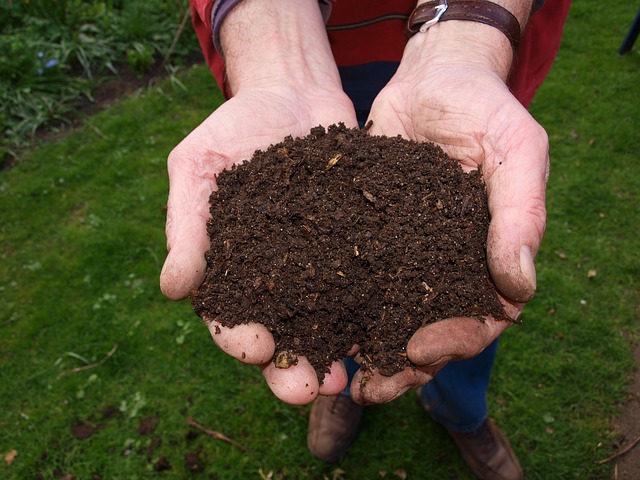Composted soil is wonderful soil for potted plants and gardens, and it benefits the planet by reducing the amount of trash we put in the garbage can. We are able to reuse unwanted or spoiled food by putting it in a compost bin or pile, and in a small amount of time (varies depending on how often it is turned and what it is made of), it will transform into the soil. The waste basically decays, and it becomes dirt.
Generally speaking, composted soil is thought of as a natural way to get rich, organic soil without the issues of fertilizers and other chemicals. However, organic is not always safe. That is why there are certain things that you never put in your compost pile, such as meat. It is also why you may want to put on a mask while you turn or rotate your pile.
The Hazards of Compost
1. Mold:
Moisture is an essential part of composting, which means mold is very normal to see in your pile. Mold is not terribly dangerous in compost because it is often part of the process of decomposition. In fact, mold is only suspected of being dangerous in certain situations. Something that coincides with mold, however, can definitely cause problems. That is why people who are sensitive to mold should wear a mask when turning the compost.
2. Pests:
Some people complain of getting rats and other rodents in their compost. That is why you don’t put meat or dairy products in your pile. Meat and dairy products smell terrible as they decompose, and they attract pests. If you want to compost meat products, you must get a bokashi bin. Otherwise, your decomposing meat may contain pathogens that can make somebody sick. Not convinced to keep meat out of your compost with those statements? Well, then consider the fact that it is going to take longer for your compost to be ready if you add meat and dairy to it.
3. Pathogens:
Not only do meat and dairy products introduce the risk of pathogens, but pet waste can also make hazardous. You may think it is nature’s fertilizer, but don’t add it to your compost, or you may make it dangerous.
4. Chemicals:
Lastly, don’t put chemicals on your compost, or your soil will not be organic. This includes using soapy water as your moisture source.
Compost is not truly a hazardous activity, but it can be if you go about it in the wrong way. This is especially true if you are sensitive to mold. All of the hazards of compost are easily avoidable, but you should keep yourself aware of any risks.
